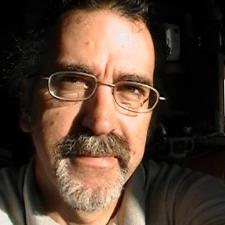Fabia B.
asked • 09/25/20religion that is an discussion about religion and state
In some countries, like the United Arab Emirates, religion plays a strong role in laws governing how people live their daily lives. For example, during the celebration of Ramadan, it is illegal to eat, drink or smoke in public during daylight hours (even in your car!). In the United States, the Establishment Clause of the Constitution is supposed to prevent religion from playing this sort of political role (although it doesn’t always). What reasons might there be for favoring the Establishment Clause? What reasons might there be for opposing it?
1 Expert Answer

Marcus S. answered • 10/02/20
Novelist, scriptwriter, translator, Excelsheeter
The Establishment clause of the US Constitution has some roots 225 years earlier in the Magdeburg Confession where the evangelical Lutherans were holding on to their lives in that town. They sought freedom of worship where the Papacy would not be the state religion. The clause prevents state religions. It does not stop pluralism of religion, only what they might do to others. There are only a few moments and phases and passages in Islam where it is pluralistic; it didn't make sense in the overall teaching. This is an ongoing problem, because there is a doctrine called 'naqziq' in which the later revelations (passages, scriptures) of Islam overrule the earlier--the ones that have traces of toleration.
In England, the departure of Henry from the Papacy was driven by his remarriages; that in turn was because he lacked a male heir. When he could not get permission, he found from Luther's writings that he could just form his own state church, although he didn't notice that the state part was a mistake. Victoria attempted to be tolerant, but it was a difficult task. This is why many, many people from around the world have come to the US in the time since the US Constitution.
Still looking for help? Get the right answer, fast.
Get a free answer to a quick problem.
Most questions answered within 4 hours.
OR
Choose an expert and meet online. No packages or subscriptions, pay only for the time you need.





Sorita D.
The First Amendment prevents Congress from limiting freedom of religion. It also forbids Congress from setting up a church or making laws respecting a church. The clause ‘against establishment of religion by law’ was intended to erect, as Thomas Jefferson said, “a wall of separation between Church and State.”It is noteworthy that the framers of the Bill of Rights chose to discuss the subject of religion first. Because of the centuries of religious strife in their homelands, an indelible imprint was left on their minds and hearts. They were determined to guard against repetition of those bitter struggles. Then, will the worldwide yearning for liberty, justice, and equality never be realized? On the contrary, we are closer to realizing the fulfillment of such ideals than ever before. Why so? Because we live in the time, about which Bible prophecy long ago spoke, when all oppressive governments will be removed and control of human affairs will be taken over by the government for which Jesus Christ taught his followers to pray—the Kingdom of God.—Matthew 6:9, 10.The disastrous events that have taken place in our 20th century give proof that we are in the last days of this present system of things and that soon God’s heavenly Kingdom will take over rulership of the earth. (Matthew 24:3-13; 2 Timothy 3:1-5) As Bible prophecy foretold: “In the days of those kings [governments now existing] the God of heaven will set up a [heavenly] kingdom that . . . will not be passed on to any other people. It will crush and put an end to all these kingdoms [now existing], and it itself will stand to times indefinite.”—Daniel 2:44.08/28/21